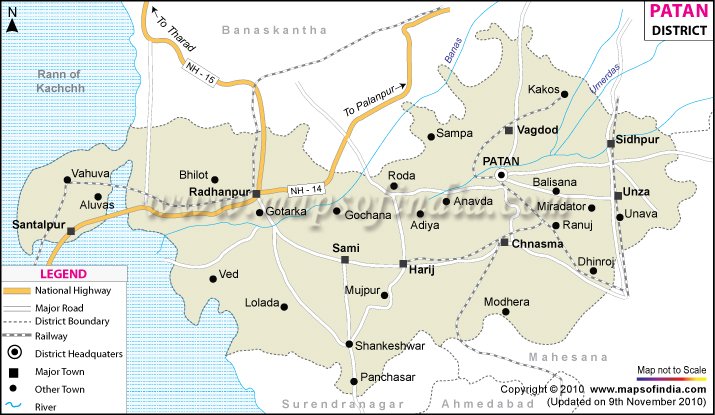There are plenty of good things that come out of it, however, I'll be focusing on the dark side of it on this thread. 🌑
Revealing the dark side of open source projects
🧵👇
There are plenty of good things that come out of it, however, I'll be focusing on the dark side of it on this thread. 🌑
It's not unusual to see companies leading the top starred/ forked and used libraries out there.
Angular (Google)
Font-Awesome (Twitter)
React (Facebook)
Bootstrap (Twitter)
Tensorflow (Google)
Flutter (Google)
VsCode...
Here's the thing: 👇
Then, with a bit of luck we can gain some track and carry some people with us on the way.
Gain some stars, becoming a trending dev a couple of days and have a usable and decent project
It is a constant flow of new bugs, issues, questions, enhancements… A never ending task demanding constant monitoring.
That's what I like to call: "The maintenance dilemma".
At some point in time, you’ll have to take a decision:
1 -You stop maintaining it.
2- Or you keep doing it.
You’ll have to choose between a barbecue with friends during the weekend or fixing bugs and closing issues by yourself at home.
Between chilling out with a movie or adding new "urgent" feature.
You know you won’t have time for it unless you decide sleeping is for losers, and at that point, your life is at risk.
Are you sure about that?
I bet you've found tens of unmaintained or dead projects with no support and issues getting accumulated
The "community" tend to just use your "free" project and few are the ones willing help maintaining and improving a project in the long term.
Now, on top of all you do, you'll have to review their pull request, understand it and potentially get into a conversation to fix that issue/feature you've never thought of.
https://t.co/zWfvFiA3Jo
Sure! But specially if developers working on them don't burn out.
Great open source projects tend to be the ones maintained by developers who get paid to work on those.
Those who can dedicate their full-time and effort on improving them.
"But Alvaro, how? Didn't you burned out?" 👇
6 months after that I quit my job to dedicate full-time to it.
I happily answer emails, stackoverflow questions, Github issues, Webflow forums and DMs on Twitter.
I don't see it as a sacrifice anymore but as great opportunity to work on what I like.
It's good for me AND it's good for developers who want to use it.
I've been lucky finding this equilibrium, but not everybody can.
When this doesn't happen, the dark side might end up turning down some projects on the way.
Here's great talk from @fat from Bootstrap and Bower explaining why he feels guilty creating open source projects and the cost of it:
https://t.co/v5a7ZXUtHb
And remember:
“If Once You Start Down The Dark Path, Forever Will It Dominate Your Destiny.”
You May Also Like
Margatha Natarajar murthi - Uthirakosamangai temple near Ramanathapuram,TN
#ArudraDarisanam
Unique Natarajar made of emerlad is abt 6 feet tall.
It is always covered with sandal paste.Only on Thriuvadhirai Star in month Margazhi-Nataraja can be worshipped without sandal paste.

After removing the sandal paste,day long rituals & various abhishekam will be https://t.co/e1Ye8DrNWb day Maragatha Nataraja sannandhi will be closed after anointing the murthi with fresh sandal paste.Maragatha Natarajar is covered with sandal paste throughout the year

as Emerald has scientific property of its molecules getting disturbed when exposed to light/water/sound.This is an ancient Shiva temple considered to be 3000 years old -believed to be where Bhagwan Shiva gave Veda gyaana to Parvati Devi.This temple has some stunning sculptures.

#ArudraDarisanam
Unique Natarajar made of emerlad is abt 6 feet tall.
It is always covered with sandal paste.Only on Thriuvadhirai Star in month Margazhi-Nataraja can be worshipped without sandal paste.

After removing the sandal paste,day long rituals & various abhishekam will be https://t.co/e1Ye8DrNWb day Maragatha Nataraja sannandhi will be closed after anointing the murthi with fresh sandal paste.Maragatha Natarajar is covered with sandal paste throughout the year

as Emerald has scientific property of its molecules getting disturbed when exposed to light/water/sound.This is an ancient Shiva temple considered to be 3000 years old -believed to be where Bhagwan Shiva gave Veda gyaana to Parvati Devi.This temple has some stunning sculptures.

Oh my Goodness!!!
I might have a panic attack due to excitement!!
Read this thread to the end...I just had an epiphany and my mind is blown. Actually, more than blown. More like OBLITERATED! This is the thing! This is the thing that will blow the entire thing out of the water!
Has this man been concealing his true identity?
Is this man a supposed 'dead' Seal Team Six soldier?
Witness protection to be kept safe until the right moment when all will be revealed?!
Who ELSE is alive that may have faked their death/gone into witness protection?

Were "golden tickets" inside the envelopes??

Are these "golden tickets" going to lead to their ultimate undoing?
Review crumbs on the board re: 'gold'.

#SEALTeam6 Trump re-tweeted this.

I might have a panic attack due to excitement!!
Read this thread to the end...I just had an epiphany and my mind is blown. Actually, more than blown. More like OBLITERATED! This is the thing! This is the thing that will blow the entire thing out of the water!
Tik Tok pic.twitter.com/8X3oMxvncP
— Scotty Mar10 (@Allenma15086871) December 29, 2020
Has this man been concealing his true identity?
Is this man a supposed 'dead' Seal Team Six soldier?
Witness protection to be kept safe until the right moment when all will be revealed?!
Who ELSE is alive that may have faked their death/gone into witness protection?

Were "golden tickets" inside the envelopes??

Are these "golden tickets" going to lead to their ultimate undoing?
Review crumbs on the board re: 'gold'.

#SEALTeam6 Trump re-tweeted this.




















